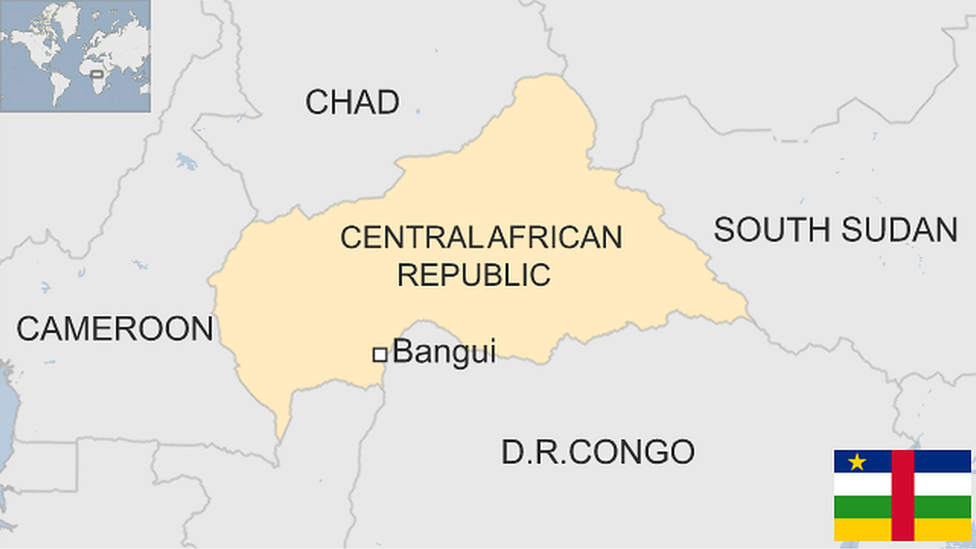CAR violence: Deadly clashes in Bria despite ceasefire deal
- Published
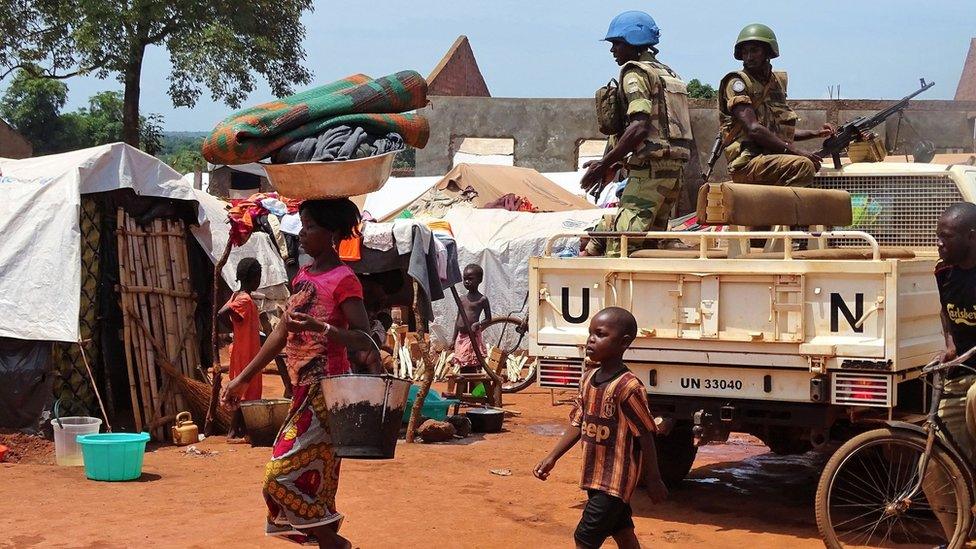
UN peacekeepers run regular patrols in Bria
At least 100 people have been killed in fighting in the Central African Republic (CAR), a day after a ceasefire was signed between rebels and the government.
The mayor of the town of Bria, north-east of the capital Bangui, said bodies were lying in the streets.
The truce, signed in Rome on Monday, included an immediate ceasefire.
It was intended to bring armed groups into the political process in exchange for ending attacks.
Town Mayor Maurice Belikoussou told the Associated Press that dozens of wounded were seeking treatment at the local hospital.
Witnesses told the news agency that fighting had erupted early on Tuesday between the anti-Balaka militia and rebels from the group known as FPRC, who were once part of the Seleka movement.
Thousands of people have been killed and hundreds of thousands displaced in the CAR since mainly Muslim Seleka rebels ousted President Francois Bozize in 2013.
The move triggered a backlash from mostly Christian militias, called the anti-Balaka.
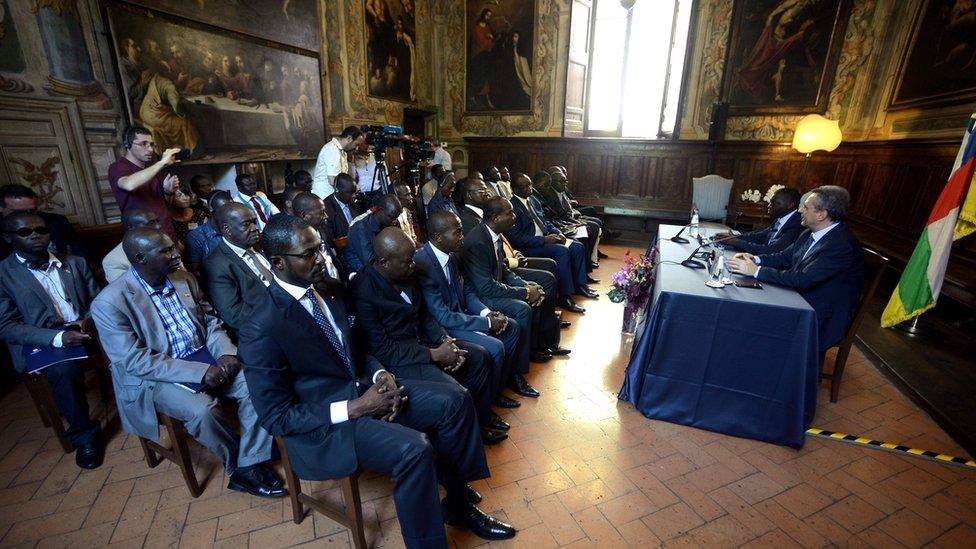
The ceasefire was brokered by the Sant' Egidio Catholic Community and signed in Rome
The UN said in May, external that almost all the residents of Bria had fled the town.
After violence erupted last month, 38,500 people left in just three days, it said.
The peace agreement was brokered by the Sant' Egidio Catholic Community, external in Rome in the wake of years of sectarian violence and the deployment of a long-running UN peacekeeping mission to the country.
More than a dozen militia groups agreed to end hostilities immediately and to co-operate with a truth, justice and reconciliation commission.
But observers say armed groups have yet to show an interest in laying down their arms.
BBC West Africa correspondent Thomas Fessy says deals have been signed in the past few years but all have failed to bring the country back to peace and stability.
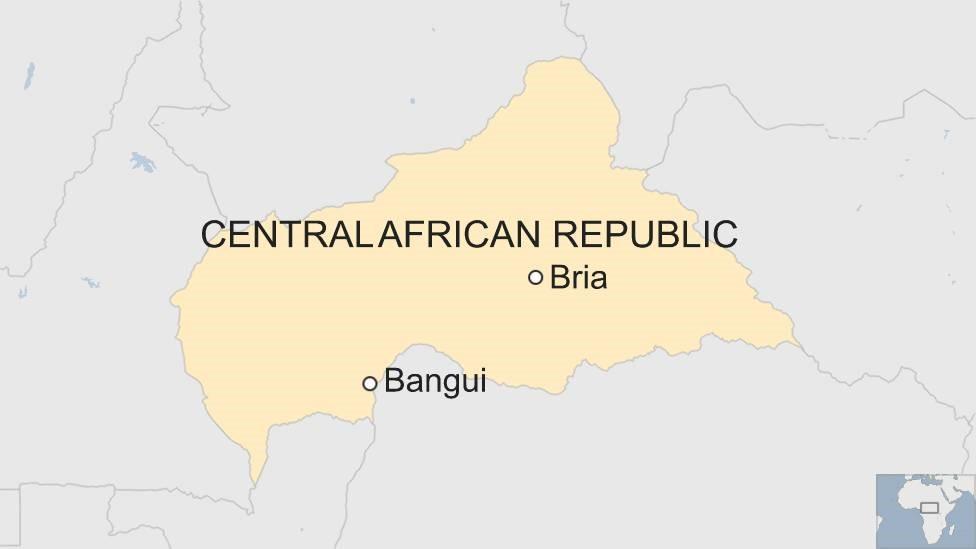
- Published18 September 2016
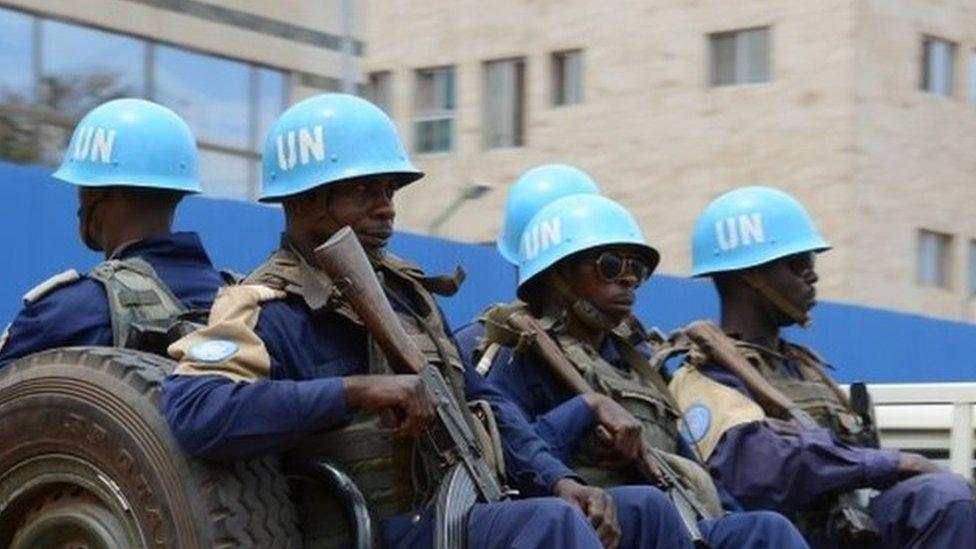
- Published11 January 2013
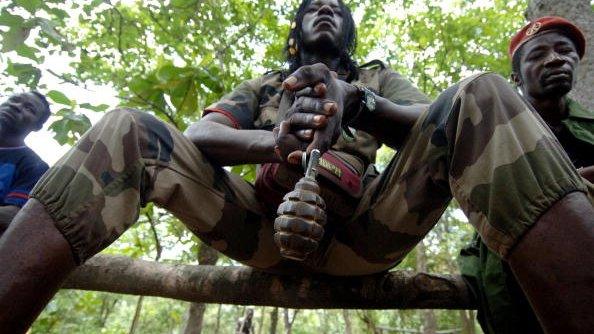
- Published22 August 2023
